Rare Voices: Honduras – Diana Vasquez
Rare: Generally, how has COVID affected your country relative to the rest of the world?
Diana Vasquez: Honduras is one of the poorest countries in the western hemisphere. It has 9 million inhabitants, of which 70% are poor and 44% live in extreme poverty. That is, we have 3.9 million people who cannot access the most basic needs such as food, clean water, sleep indoors, or have education. When you have these conditions, investments in the health system are usually very low, and in Honduras we see one of the countries with the lowest health coverage in the world. The last thing we needed was the arrival of a virus, such as COVID-19.
Since the beginning of the pandemic to today (April 30), we have 1,700 cases confirmed but it’s estimated that there are many more cases that haven’t identified yet. It’s impossible for us to get the tests because right now it’s like a race to get the materials, and Honduras doesn’t have the capacity to compete against Europe, the United States, or other countries. So we are waiting to have access to these kind of health materials and testing. Right now we only have the capacity to test about 50 people per day.
Rare: How has COVID-19 changed daily life in the communities in which we work?
DV: Small-scale fisheries sustain the livelihoods of over 7,000 households along Honduras’s Caribbean coast. The fishers are an essential source of food and income for all the community. Without them, most coastal homes would not be able to feed themselves or cover basic needs. With the arrival of COVID-19, the government adopted a series of measures to stop the spread of the virus.
The strongest of these measures has been the lockdown at the national level. This measure immediately affected the seafood supply chain and isolated the fishers from the markets, affecting their income almost automatically. The first days were days with high uncertainty for the communities where we work. The population was forced to stay at home, and that, for people who live day to day, is not a viable option for a long time. Seafood buyers stopped reaching communities, restaurants and hotels closed their operations, further complicating the outlook for our fishers.
Rare: What are the main COVID-related challenges in these communities?
DV: The government enabled all producers, including fishers, to continue operating with a certain normality in order to ensure food for the rest of the population. However, markets, restaurants, and hotels are still closed to this day, and the lockdown is still ongoing. Although fishers are fishing, there is no one to sell their product to. If there is no sale, there is no income in those homes. There is fish to eat and there is fish to sell to the neighbors, which is great, but there is not enough money to buy other food, or to buy medicines or pay for basic services like electricity bills.
Rare: How has COVID made our work with these communities challenging?
DV: COVID came and changed everything. Suddenly we cannot reach the communities, we cannot meet people, we cannot shake hands. When you have so many friends and you meet so many exceptional people that you don’t know when you will see them again, it is difficult not to feel sad.
However, paradoxically, COVID has brought us positive things. Something great that COVID is showing us is that our strategy, focused on strengthening communities and taking actions to ensure the fishing of the future, is totally correct. And now it is so evident to see how fishing is the safety net for all coastal communities not only in Honduras, but around the world. The health and abundance of this resource is key to survival in these communities. Investing in protecting and strengthening the ecological and social capital of our communities is essential to bear the crisis of today and the crises that will come in the future.
COVID-19 is forcing us to think even more about innovative ways to develop our work, to create new methodologies. It is challenging us to reinvent ourselves, to be even better than we are.
Rare: How is Rare helping these communities? Has Rare’s work in anyway contributed to the resiliency of these communities?
DV: In the past 2 years, Rare has worked hand in hand with the local governments of 19 coastal municipalities along the northern coast of Honduras, primarily in strengthening the financial, environmental, and social resilience of fishers and their families. (We’ve done this) thinking that hurricanes, floods, or low fishing periods were going to continue to be the main climate threats for the communities. Although we have previously witnessed multiple types of disasters, nothing compares to the ravages that COVID is wreaking in terms of people’s health, loss of life, and the economy at all levels.
Although we did not expect a virus as such, we see that what was achieved in terms of preparing communities for extreme events is serving to lessen the impact of COVID. People have adopted cohesive communication and mutual trust, (which) are making a big difference right now. The savings club’s savings and social funds are serving as a financial buffer for the purchase of food and medicine. The network of mayors is more active than ever, sharing resources, key contacts and experiences, and seeking solutions together. The mayors along with all the leaders of the communities are working to direct the rest of the community towards the exit of this crisis.
It is incredible to see the leadership that mayors are taking. We have been talking with several of them to understand the needs, their concerns, their frustrations and hopes, with the idea that Rare will have a key role during the recovery period when this crisis period passes.
Recovery will not be easy or quick, but we will be there, ready to accompany those local leaders in the implementation of actions to protect critical habitats to ensure food for the future, further support the financial inclusion of the fishing sector, promote more vigorous savings and community entrepreneurship, and support the mobilization of communities to protect their livelihoods.
Rare: What gives you hope?
DV: When the first cases of COVID occurred in Honduras, I was very fearful for the fishers and their families. But I was surprised when the first communications came from them. I remember when the first audio (messages) began to arrive, saying, “We are fine, our family is fine. We have some difficulties, but while we can fish, we will be fine.” That made me feel so happy.
During this time, we have been contacting the local leaders, the mayors, our partners and something that has filled me with immense satisfaction is seeing the behaviors of positive cooperation and mutual aid that all of them, from the mayors down to the last fishers, have shown. The fishers have given us a tremendous lesson in generosity and serving others by donating the social funds of their saving club to buy food for the most vulnerable in the community, as the fishers of La Sabana did.
Mayors have given us an impressive lesson in leadership, strength, and service to others. If you remember, the mayors are normal people like you, like me. But there are mayors with serious illnesses who are working almost 20 hours a day, risking their lives to save others. One of them is the mayor of Omoa, Don Ricardo, who some time ago had an open-heart operation, and has not left the battlefield for a single day. You can constantly see him in community meetings, visiting the communities, bringing food from house to house, in a press conference giving directions. In short, doing what a great leader is called to do. Iriona’s mayor, Don Wilmer, who organized all of his communities to prevent the virus from entering and to this day they have zero cases. Another hero is the mayor of Santa Fé who organized his people to voluntarily carry out fumigations and community surveillance activities to identify, locate, and isolate the sick. Don Allan Ramos, mayor of Puerto Cortes, structured a local committee of doctors, economists, military, community leaders, with whom he quickly prepared a strategy to mitigate the impact of the virus.
It is in these cases that you realize that there is hope, that there is a tomorrow, that we are not alone, that we are all committed to this country, to our people, and to our resources. That gives me hope to continue.


